On behalf of MIT Blueprint Labs, we would like to extend a heartfelt thank you for your support in 2024. This year at Blueprint, we studied critical issues in education, health care, and the workforce. Through several innovative policy initiatives, we also bridged the gap between research, policy, and practice to generate impact. We are excited to expand upon this work and further our policy impact in the new year.
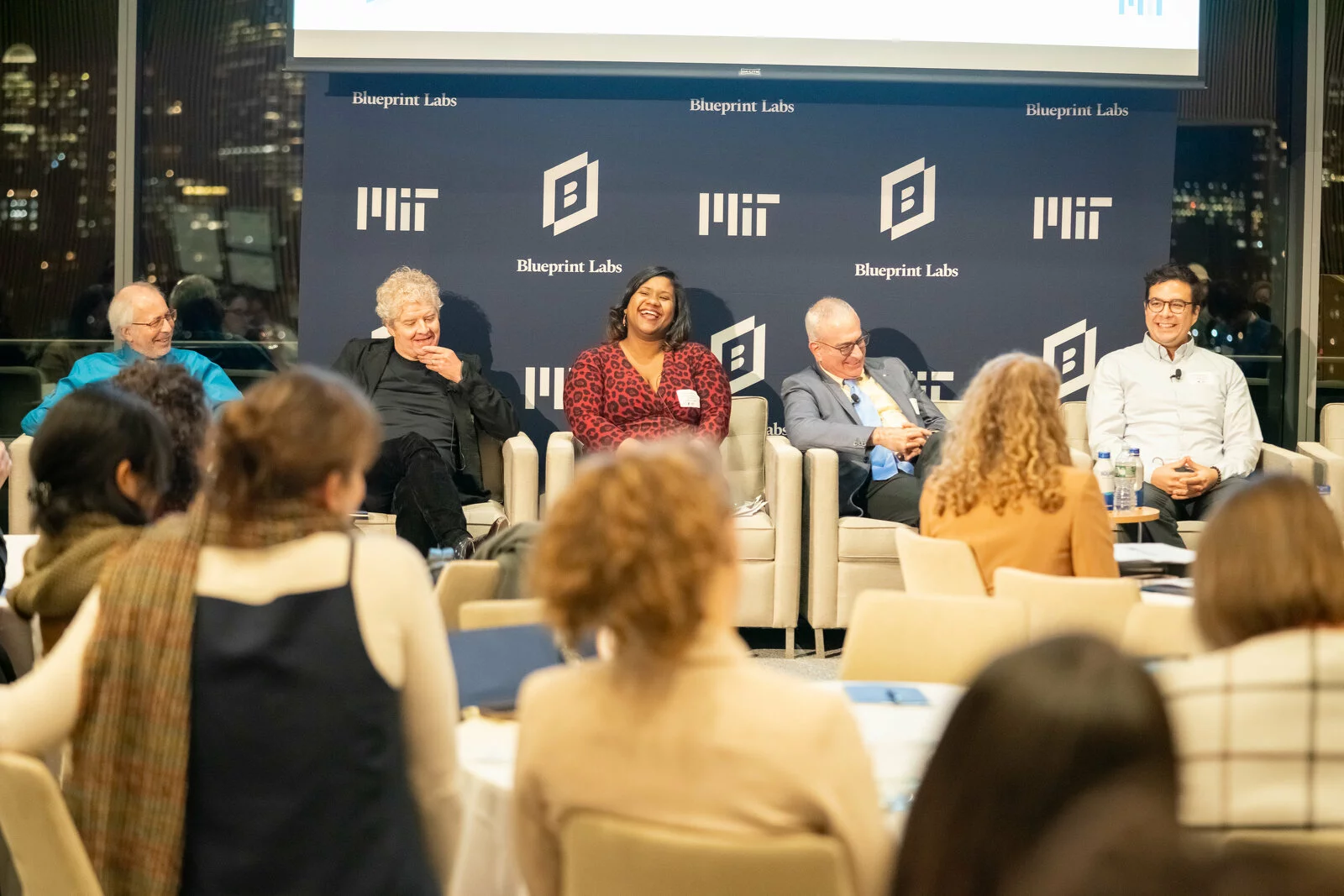
Blueprint Affiliates Daron Acemoglu and Simon Johnson received the 2024 Nobel Memorial Prize in Economic Sciences, alongside James A. Robinson of the University of Chicago “for studies of how institutions are formed and affect prosperity.”
Learn more about their research and accomplishments.


Despite school choice systems that allow students to attend schools outside their neighborhoods, unequal access to effective schools persists in many large districts. Family choices partially drive these inequalities. A study by Blueprint Affiliates Clémence Idoux and Viola Corradini examines families’ decisions and explores the role diverse middle schools play in changing decision-making and alleviating education inequalities. Read the policy brief and the working paper to learn more.
Blueprint researchers also studied measures of school quality in 2024. Blueprint Co-Directors Josh Angrist and Parag Pathak and Affiliates Peter Hull and Christopher Walters published a paper in American Economic Review: Insights which examines the relationships between school quality ratings, race, and a school’s impact on student success. Blueprint collaborated with New York City Public Schools to publish the measures on their School Performance Dashboard. Check out the research, Blueprint’s policy brief, and a write-up from MIT News.
In recent years, AI has become more prevalent in medicine. In two new papers, Blueprint Co-Director Nikhil Agarwal and co-authors examine AI’s role in radiology diagnostics. A publication in Nature Medicine provides valuable insight on how to design effective collaborations between radiologists and AI. Another publication in American Economic Association Papers and Proceedings compares AI and human predictions of rare diseases. The study shows that radiologists predict rare diseases no better than AI, contrary to one common hypothesis.
Around 60% of current US employment is in “new work” introduced after 1940. Research by David Autor et al., recently published in the Quarterly Journal of Economics, studies the origins and content of new work and its effect on labor demand. New technologies can create demand for new forms of expertise, or they can replace existing jobs through automation. Learn more about this research in MIT News and on the Freakonomics podcast.
The 2018–2019 trade war between the US, China, and other US trade partners had economic and political consequences. A recent working paper from Blueprint Co-Director David Autor and co-authors finds that new import tariffs on foreign goods had no impact on US employment rates, while foreign retaliatory tariffs decreased US employment, particularly in agriculture. Nevertheless, these “Trump tariffs” appear to have been a political success: residents of regions more exposed to import tariffs became more likely to vote Republican. Axios and the Ezra Klein Show highlighted this work.
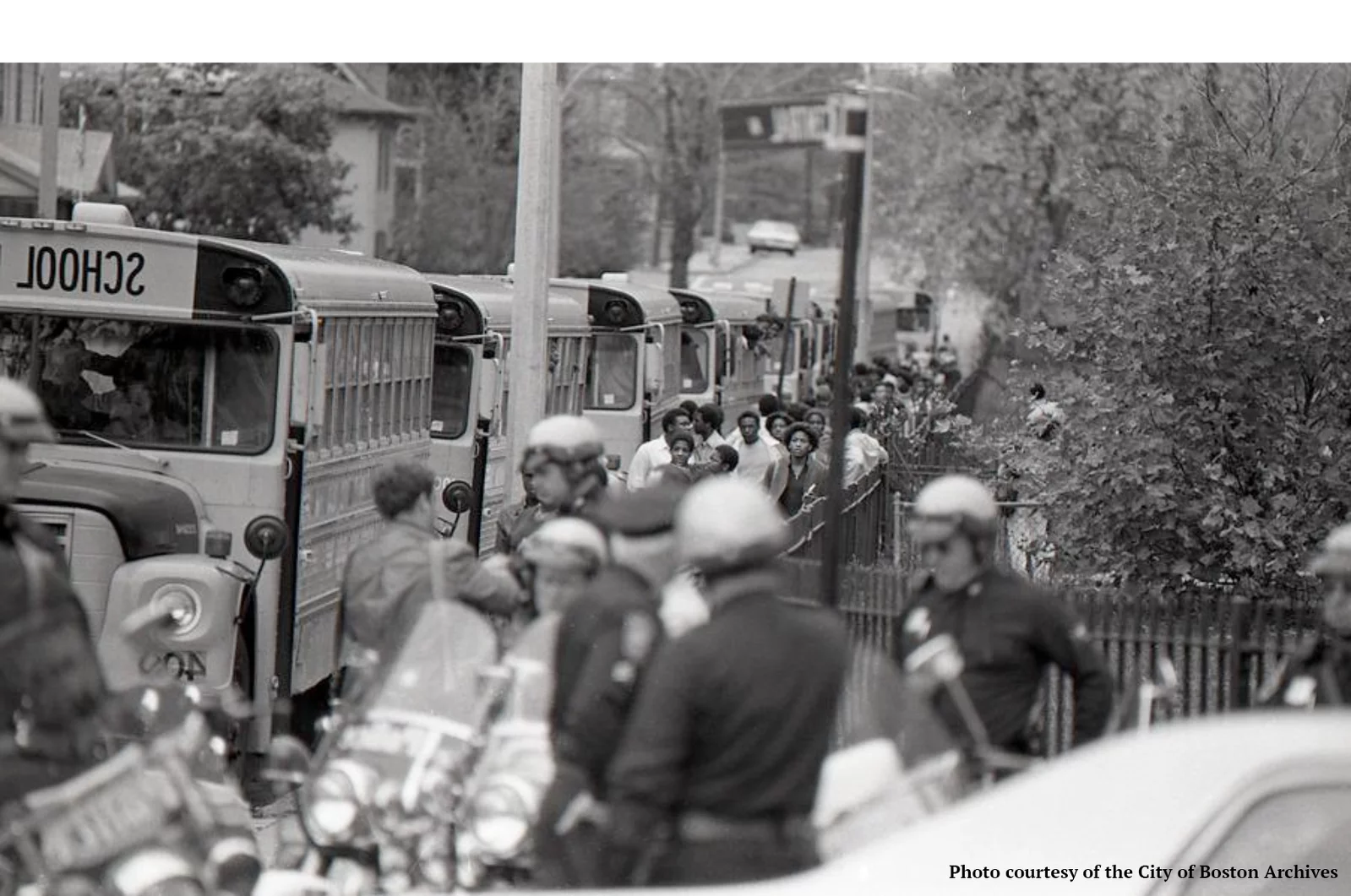
Fifty years after Boston’s landmark school integration decision, Blueprint reflected on education equity in Boston. In a panel discussion, we convened community members, practitioners, policymakers, and researchers to reflect on the legacy of school desegregation in Boston and discuss how to improve education for the city’s most disadvantaged students. Blueprint Co-Directors Josh Angrist and Parag Pathak and Senior Policy and Communications Associate Amanda Schmidt argued for a reexamination of Boston’s current system in a Boston Globe op-ed.
The MIT Shaping the Future of Work Initiative, led by Blueprint Co-Director David Autor and Affiliates Daron Acemoglu and Simon Johnson, launched in January. The Initiative applies economics research to identify innovative ways to move the economy onto a more equitable trajectory, with a central focus on revitalizing labor market opportunities for non-college workers.
Blueprint’s Charter School Research Collaborative advanced actionable charter school research by funding policy-relevant studies and fostering new research-practice partnerships. In 2024, the Collaborative funded 17 projects addressing pressing charter questions nationwide. Blueprint also hosted six matchmaking sessions that provided 113 charter stakeholders with opportunities to build new partnerships.
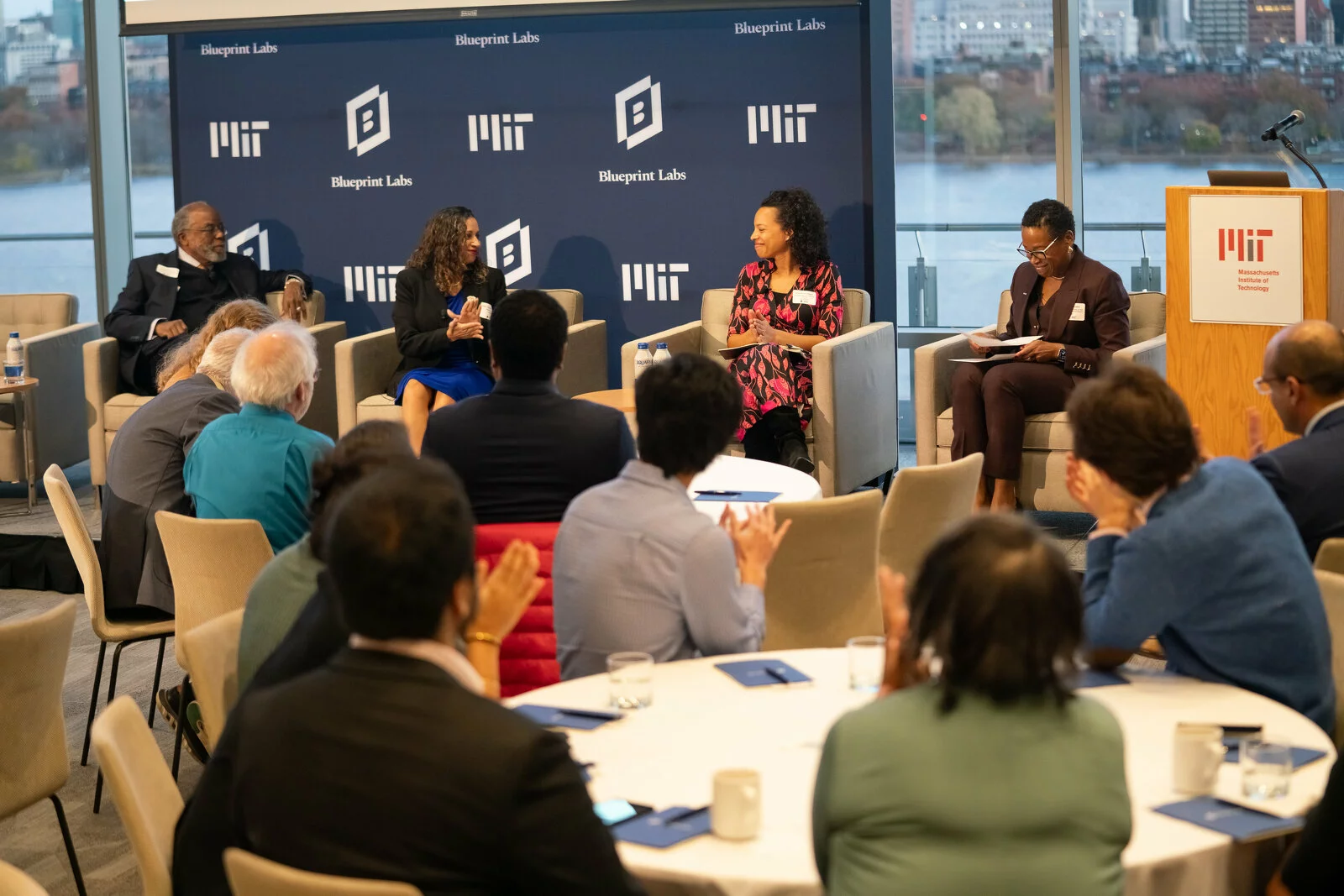
Angrist, Joshua, Peter Hull, Parag Pathak, and Christopher Walters. “Credible School Value-Added with Undersubscribed School Lotteries.” The Review of Economics and Statistics 106(1) (January 2024): 1–19.
Angrist, Joshua, Peter Hull, Parag Pathak, and Christopher Walters. “Race and the Mismeasure of School Quality.” American Economic Review: Insights 6(1) (March 2024): 20–37.
Autor, David, Caroline Chin, Anna Salomons, and Bryan Seegmiller. “New Frontiers: The Origins and Content of New Work, 1940–2018.” The Quarterly Journal of Economics 139(3) (March 2024): 1399–1465.
Yu, Feiyang, Alex Moehring, Oishi Banerjee, Tobias Salz, Nikhil Agarwal, Pranav Rajpurkar. “Heterogeneity and Predictors of the Effects of AI Assistance on Radiologists.” Nature Medicine 30 (March 2024): 837–849.
Greenberg, Kyle, Parag Pathak, and Tayfun Sönmez. “Redesigning the US Army’s Branching Process: A Case Study in Minimalist Market Design.” American Economic Review 114(4) (April 2024): 1070–1106.
Agarwal, Nikhil, Ray Huang, Alex Moehring, Pranav Rajpurkar, Tobias Salz, and Feiyang Yu. “Comparative Advantage of Humans versus AI in the Long Tail.” AEA Papers and Proceedings 114 (May 2024): 618–622.
Acemoglu, Daron, David Autor, and Christina Patterson. “Bottlenecks: Sectoral Imbalances and the US Productivity Slowdown.” NBER Macroeconomics Annual 38 (2024): 153–207.
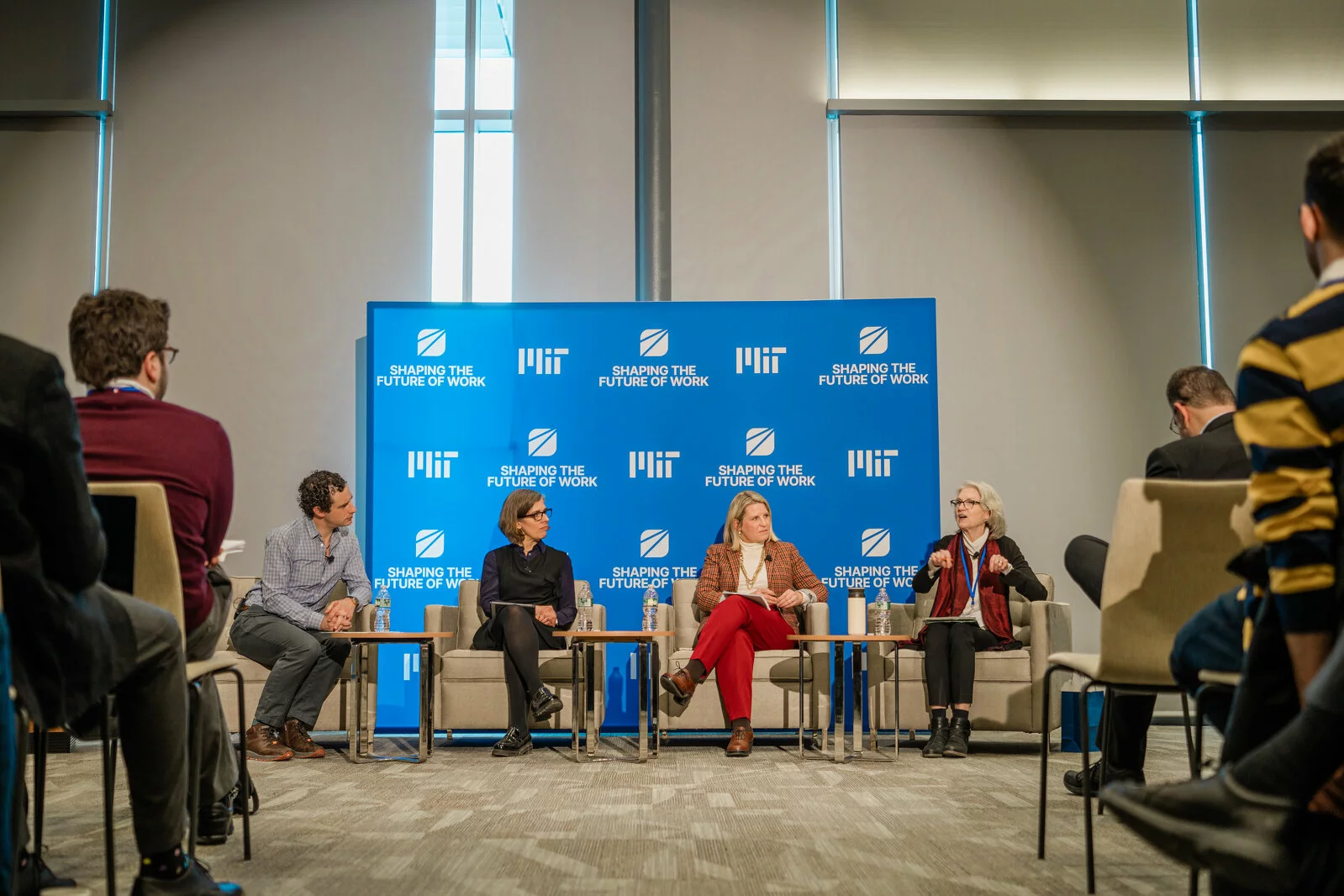
Shaping the Future of Work Initiative Launch Event – January 22, 2024
The MIT Shaping the Future of Work Initiative officially launched with a full-day event that convened policymakers, practitioners, scholars, students, and the public. Three panel discussions explored the future of work, worker representation, and how AI can be used for social good.
School Access and Quality Fellowship City Learning Visit – May 30 & 31, 2024
MIT Blueprint Labs’ School Access and Quality (SAQ) Fellows met in New Orleans for the City Learning Visit, an annual event in which Fellows learn about one city’s enrollment systems and practices. The event marked the end of Blueprint’s fourth annual SAQ Fellowship. Read more about the event in our June blog post.
Fireside Chat with Audrey Tang – September 24, 2024
The MIT Shaping the Future of Work Initiative co-hosted Audrey Tang, the former Digital Minister of Taiwan, for a discussion with Daron Acemoglu about how collaborative digital technology can build and strengthen democracy. MIT Sloan’s Leadership Now Project Chapter co-hosted the event.
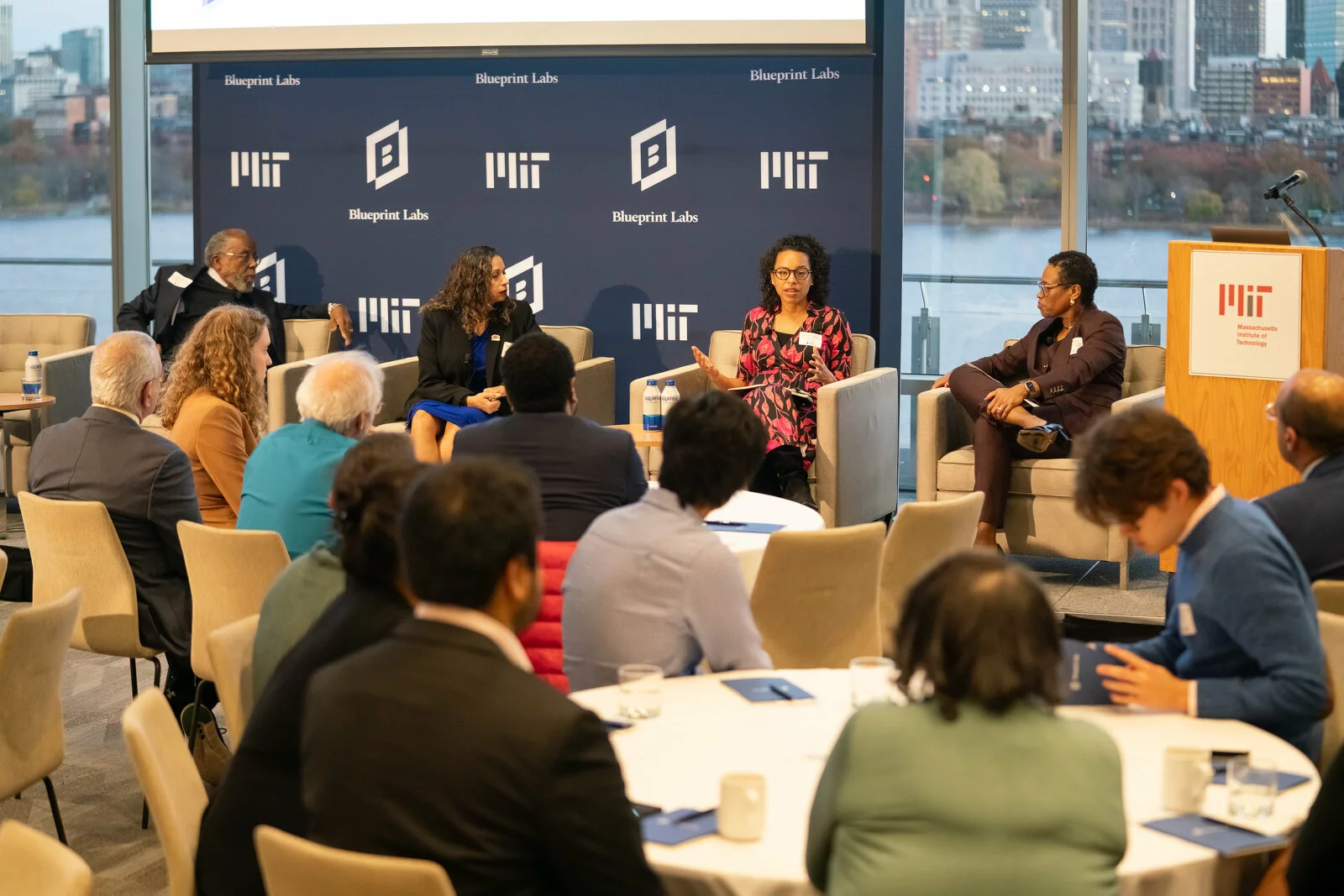
School Access and Quality Fellowship Kickoff – September 26 & 27, 2024
Blueprint welcomed our fifth cohort of SAQ Fellows to MIT for the Fellowship kickoff, a two-day event that builds the foundation for a year of learning and community. Read more in our October blog post.
50 Years after Garrity: School Integration and Performance in Boston Public Schools – November 7, 2024
Fifty years after Boston’s landmark school integration decision, Blueprint convened community members, practitioners, policymakers, and researchers for a panel discussion on the legacy of school desegregation in Boston and strategies to improve education equity moving forward. A December blog post summarizes these nuanced discussions.
The Charter School Research Collaborative will close its third request for proposals on February 5, 2025. We are excited to support more rigorous and actionable charter school research conducted in partnership with practitioners or policymakers. Sign up here to receive the Collaborative’s updates.
We look forward to sharing findings from several exciting studies in 2025, including findings from a project that examines non-test score measures of student success.
Subscribe for Updates